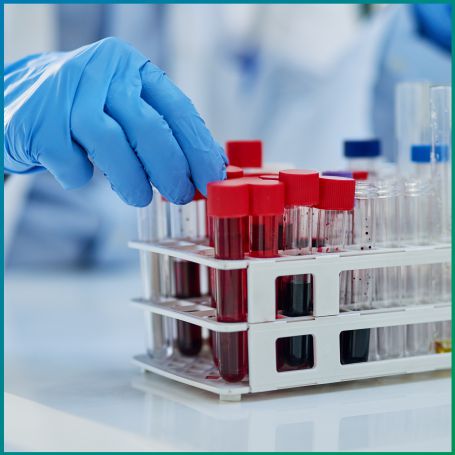
The Anti-Cardiolipin IgA Antibody Test is used to detect the presence of IgA antibodies against cardiolipin, a phospholipid that plays a crucial role in blood clot formation.


When the immune system produces antibodies against cardiolipin, it can interfere with normal blood clotting, raising the risk of conditions like Antiphospholipid Syndrome (APS). Testing for Anti-Cardiolipin IgA, along with other antibodies like Anti-Cardiolipin IgG and IgM, helps doctors diagnose and manage autoimmune and clotting disorders.
Anti-Cardiolipin IgA is an antibody produced by the immune system in response to cardiolipin. This type of antibody is typically found in individuals with autoimmune conditions such as Systemic Lupus Erythematosus (SLE) or APS. A positive result for Anticardiolipin IgA indicates an increased likelihood of clotting issues, recurrent miscarriages, or other complications associated with APS.
Early Detection of Antiphospholipid Syndrome (APS): Testing for Anticardiolipin IgA helps identify APS, which is essential for preventing recurrent blood clots and managing clotting risk.
Guiding Pregnancy Management: High levels of Anti-Cardiolipin IgA are associated with pregnancy complications. Regular testing can help manage and reduce risks for women experiencing recurrent miscarriages.
Assessing Clotting Risk: Along with Anti-Cardiolipin IgG and IgM, IgA antibodies are critical markers for assessing the likelihood of blood clots, stroke, and heart attacks, especially in autoimmune patients.
The normal range for Anti-Cardiolipin IgA varies by laboratory but typically falls within these categories:
Negative/Low Risk:0-15 APL (IgA Phospholipid units)
Moderate/Borderline Risk: 15-40 APL
High Risk: >40 APL
A positive Anti-Cardiolipin IgA result, particularly at high levels, may indicate an elevated risk of blood clotting and related disorders. Anticardiolipin IgA positive results, when combined with clinical symptoms, could confirm an APS diagnosis.
The Anti-Cardiolipin IgA Test is recommended for:
Individuals with unexplained blood clots or recurrent thrombosis. Patients diagnosed with autoimmune diseases like lupus who are at higher risk for APS. Women with a history of recurrent pregnancy loss or preeclampsia. Patients with a family history of autoimmune or clotting disorders.
1. High-Precision Testing: Diagnopein employs advanced laboratory technology for accurate and reliable Anti-Cardiolipin IgA antibody testing.
2. Expert Medical Team: Our specialists are highly experienced in autoimmune and clotting disorders, ensuring comprehensive and clear interpretations of your test results.
3. Quick and Convenient: With multiple locations, Diagnopein in Pune provides fast, accessible testing options, making it easy to schedule and receive results promptly.
Patient-Centered Care: Diagnopein focuses on a compassionate approach, offering personalized consultations to guide patients on follow-up steps and treatment options.
People with a history of unexplained blood clots, autoimmune diseases like lupus, or recurrent pregnancy loss should consider this test.
A positive Anti-Cardiolipin IgA result indicates an increased risk of blood clots and may suggest APS or other autoimmune disorders.
The test involves a simple blood draw from a vein and is processed in a laboratory for analysis.
IgA, IgG, and IgM are different classes of antibodies against cardiolipin. Each type may be tested to understand the full spectrum of immune response and clotting risk.
Yes, elevated Anti-Cardiolipin IgA can be associated with recurrent miscarriages, preeclampsia, and other pregnancy-related issues.
The normal range for Anti-Cardiolipin IgA is typically 0-15 APL. Values above this may suggest a moderate to high risk for clotting disorders.